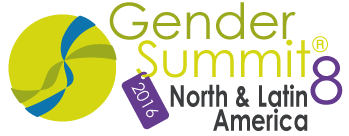GS8 Partners
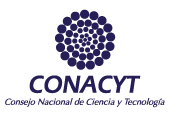 The National Council on Science and Technology (CONACYT) was created by the willingness of the Congress (H. Congreso de la Unión) on December 29th 1970, as a public and decentralized organism of the Public Federal Administration, member of the education sector, with legal personality and with its own endowment. It is also responsible of the elaboration of science and technology policies in Mexico. Since its creation and until 1999, two reforms and one law to coordinate and promote scientific and technologic development were presented, and on June 5th 2002 the new Science and Technology Law was promulgated. Our goal is to consolidate a National System of Science and Technology that responds to the country’s priority demands, gives solution to specific problems and needs, and that contributes to raise the standard of living and the social welfare state. Our Mission is to impulse and strengthen scientific development and technologic modernization in Mexico, by the high level human resources, promotion and impulse of specific research projects and the communication of science and technology information. CONACYT will contribute with other Federal Government agencies and entities, as well as with the productive sector, in order to increase Mexico’s participation in the generation, acquisition and communication of knowledge, and to considerably increase the societies scientific and technologic culture, enjoying the benefits resulted from it.
The National Council on Science and Technology (CONACYT) was created by the willingness of the Congress (H. Congreso de la Unión) on December 29th 1970, as a public and decentralized organism of the Public Federal Administration, member of the education sector, with legal personality and with its own endowment. It is also responsible of the elaboration of science and technology policies in Mexico. Since its creation and until 1999, two reforms and one law to coordinate and promote scientific and technologic development were presented, and on June 5th 2002 the new Science and Technology Law was promulgated. Our goal is to consolidate a National System of Science and Technology that responds to the country’s priority demands, gives solution to specific problems and needs, and that contributes to raise the standard of living and the social welfare state. Our Mission is to impulse and strengthen scientific development and technologic modernization in Mexico, by the high level human resources, promotion and impulse of specific research projects and the communication of science and technology information. CONACYT will contribute with other Federal Government agencies and entities, as well as with the productive sector, in order to increase Mexico’s participation in the generation, acquisition and communication of knowledge, and to considerably increase the societies scientific and technologic culture, enjoying the benefits resulted from it.
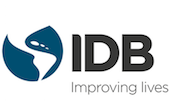 The Inter-American Development Bank (IDB) is the main source of multilateral financing in Latin America. It provides solutions to development challenges and support in the key areas of the region. We work to improve lives in Latin America and the Caribbean. Through financial and technical support for countries working to reduce poverty and inequality, we help improve health and education, and advance infrastructure. Our aim is to achieve development in a sustainable, climate-friendly way. With a history dating back to 1959, today we are the leading source of development financing for Latin America and the Caribbean. We provide loans, grants, and technical assistance; and we conduct extensive research. We maintain a strong commitment to achieving measurable results and the highest standards of increased integrity, transparency, and accountability.
The Inter-American Development Bank (IDB) is the main source of multilateral financing in Latin America. It provides solutions to development challenges and support in the key areas of the region. We work to improve lives in Latin America and the Caribbean. Through financial and technical support for countries working to reduce poverty and inequality, we help improve health and education, and advance infrastructure. Our aim is to achieve development in a sustainable, climate-friendly way. With a history dating back to 1959, today we are the leading source of development financing for Latin America and the Caribbean. We provide loans, grants, and technical assistance; and we conduct extensive research. We maintain a strong commitment to achieving measurable results and the highest standards of increased integrity, transparency, and accountability.
 Natural Sciences and Engineering Research Council (NSERC) aims to make Canada a country of discoverers and innovators for the benefit of all Canadians. The agency supports university students in their advanced studies, promotes and supports discovery research, and fosters innovation by encouraging Canadian companies to participate and invest in postsecondary research projects. NSERC researchers are on the vanguard of science, building on Canada’s long tradition of scientific excellence. NSERC’s role is to make investments in people, discovery and innovation to increase Canada’s scientific and technological capabilities for the benefit of all Canadians. NSERC invests in people by supporting postsecondary students and postdoctoral fellows in their advanced studies. We promote discovery by funding research conducted by postsecondary professors and foster innovation by encouraging Canadian companies to participate and invest in postsecondary research and training. Over the last 10 years, NSERC has invested more than $7 billion in basic research, projects involving partnerships between postsecondary institutions and industry, and the training of Canada’s next generation of scientists and engineers.
Natural Sciences and Engineering Research Council (NSERC) aims to make Canada a country of discoverers and innovators for the benefit of all Canadians. The agency supports university students in their advanced studies, promotes and supports discovery research, and fosters innovation by encouraging Canadian companies to participate and invest in postsecondary research projects. NSERC researchers are on the vanguard of science, building on Canada’s long tradition of scientific excellence. NSERC’s role is to make investments in people, discovery and innovation to increase Canada’s scientific and technological capabilities for the benefit of all Canadians. NSERC invests in people by supporting postsecondary students and postdoctoral fellows in their advanced studies. We promote discovery by funding research conducted by postsecondary professors and foster innovation by encouraging Canadian companies to participate and invest in postsecondary research and training. Over the last 10 years, NSERC has invested more than $7 billion in basic research, projects involving partnerships between postsecondary institutions and industry, and the training of Canada’s next generation of scientists and engineers.
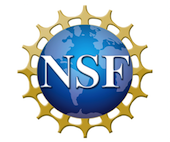 The National Science Foundation (NSF) is an independent federal agency created by Congress in 1950 "to promote the progress of science; to advance the national health, prosperity, and welfare; to secure the national defense…" With an annual budget of $7.3 billion (FY 2015), we are the funding source for approximately 24 percent of all federally supported basic research conducted by America’s colleges and universities. In many fields such as mathematics, computer science and the social sciences, NSF is the major source of federal backing. We fulfill our mission chiefly by issuing limited-term grants -- currently about 11,000 new awards per year, with an average duration of three years -- to fund specific research proposals that have been judged the most promising by a rigorous and objective merit-review system. Most of these awards go to individuals or small groups of investigators. Others provide funding for research centers, instruments and facilities that allow scientists, engineers and students to work at the outermost frontiers of knowledge. NSF's goals--discovery, learning, research infrastructure and stewardship--provide an integrated strategy to advance the frontiers of knowledge, cultivate a world-class, broadly inclusive science and engineering workforce and expand the scientific literacy of all citizens, build the nation's research capability through investments in advanced instrumentation and facilities, and support excellence in science and engineering research and education through a capable and responsive organization. We like to say that NSF is "where discoveries begin."
The National Science Foundation (NSF) is an independent federal agency created by Congress in 1950 "to promote the progress of science; to advance the national health, prosperity, and welfare; to secure the national defense…" With an annual budget of $7.3 billion (FY 2015), we are the funding source for approximately 24 percent of all federally supported basic research conducted by America’s colleges and universities. In many fields such as mathematics, computer science and the social sciences, NSF is the major source of federal backing. We fulfill our mission chiefly by issuing limited-term grants -- currently about 11,000 new awards per year, with an average duration of three years -- to fund specific research proposals that have been judged the most promising by a rigorous and objective merit-review system. Most of these awards go to individuals or small groups of investigators. Others provide funding for research centers, instruments and facilities that allow scientists, engineers and students to work at the outermost frontiers of knowledge. NSF's goals--discovery, learning, research infrastructure and stewardship--provide an integrated strategy to advance the frontiers of knowledge, cultivate a world-class, broadly inclusive science and engineering workforce and expand the scientific literacy of all citizens, build the nation's research capability through investments in advanced instrumentation and facilities, and support excellence in science and engineering research and education through a capable and responsive organization. We like to say that NSF is "where discoveries begin."
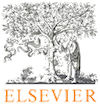 Elsevier is a world-leading provider of information solutions that enhance the performance of science, health, and technology professionals, empowering them to make better decisions, deliver better care, and sometimes make groundbreaking discoveries that advance the boundaries of knowledge and human progress. Elsevier provides web-based, digital solutions — among them ScienceDirect, Scopus, Elsevier Research Intelligence and ClinicalKey — and publishes nearly 2,200 journals, including The Lancet and Cell, and over 25,000 book titles, including a number of iconic reference works.
Elsevier is a world-leading provider of information solutions that enhance the performance of science, health, and technology professionals, empowering them to make better decisions, deliver better care, and sometimes make groundbreaking discoveries that advance the boundaries of knowledge and human progress. Elsevier provides web-based, digital solutions — among them ScienceDirect, Scopus, Elsevier Research Intelligence and ClinicalKey — and publishes nearly 2,200 journals, including The Lancet and Cell, and over 25,000 book titles, including a number of iconic reference works.
 Grouped together under the name “Fonds de recherche du Québec”, the three research funds (Nature and Technology, Health, Society and Culture) will nevertheless conserve their mandate to promote and financially support research, knowledge dissemination and researcher training in Québec. Bill 130 brings three principal changes to the structure of the funds: the integration of their administrative services, the creation of the post of Scientific Director within each fund, and the creation of the post of Chief Scientist. This highly strategic position has been awarded to Rémi Quirion, whose biography bears witness to a rich research career.
Grouped together under the name “Fonds de recherche du Québec”, the three research funds (Nature and Technology, Health, Society and Culture) will nevertheless conserve their mandate to promote and financially support research, knowledge dissemination and researcher training in Québec. Bill 130 brings three principal changes to the structure of the funds: the integration of their administrative services, the creation of the post of Scientific Director within each fund, and the creation of the post of Chief Scientist. This highly strategic position has been awarded to Rémi Quirion, whose biography bears witness to a rich research career.
 The Association for Women in Science (AWIS) is the largest multi-disciplinary organization for women in science, technology, engineering, and mathematics (STEM) dedicated to achieving equity and full participation of women in all disciplines and across all employment sectors. Founded in 1971, the Association for Women in Science (AWIS) is the largest multi-disciplinary organization for women in science, technology, engineering, and mathematics (STEM). Dedicated to driving excellence in STEM by achieving equity and full participation of women in all disciplines and across all employment sectors. AWIS reaches more than 20,000 professionals in STEM with members, chapters, and affiliates worldwide. Working for positive system transformation, AWIS strives to ensure that all women in these fields can achieve their full potential.
The Association for Women in Science (AWIS) is the largest multi-disciplinary organization for women in science, technology, engineering, and mathematics (STEM) dedicated to achieving equity and full participation of women in all disciplines and across all employment sectors. Founded in 1971, the Association for Women in Science (AWIS) is the largest multi-disciplinary organization for women in science, technology, engineering, and mathematics (STEM). Dedicated to driving excellence in STEM by achieving equity and full participation of women in all disciplines and across all employment sectors. AWIS reaches more than 20,000 professionals in STEM with members, chapters, and affiliates worldwide. Working for positive system transformation, AWIS strives to ensure that all women in these fields can achieve their full potential.
![]() Portia Ltd UK (co-founders of the Gender Summits) designs and implements effective, evidence-based strategies for advancing quality of research and innovation through gender. Our work covers gender equality issues in STEM and gender dimension in the content, process and impact of science (STEM) endeavours. We work through national and international partnerships, involving scientific community, industry, policy makers and gender research scholars, to enhance science knowledge making; improve institutional practices and process; promote human capital; and ensure compliance with regulation. We believe firmly in putting the views and needs of science at the centre of the gender equality debate in science, and as a key to achieving sustainable economic growth and promoting Europe’s role as a global R&D leader. Portia co-founded the Gender Summits in 2011 as part of a project we co-ordinated, genSET.
Portia Ltd UK (co-founders of the Gender Summits) designs and implements effective, evidence-based strategies for advancing quality of research and innovation through gender. Our work covers gender equality issues in STEM and gender dimension in the content, process and impact of science (STEM) endeavours. We work through national and international partnerships, involving scientific community, industry, policy makers and gender research scholars, to enhance science knowledge making; improve institutional practices and process; promote human capital; and ensure compliance with regulation. We believe firmly in putting the views and needs of science at the centre of the gender equality debate in science, and as a key to achieving sustainable economic growth and promoting Europe’s role as a global R&D leader. Portia co-founded the Gender Summits in 2011 as part of a project we co-ordinated, genSET.
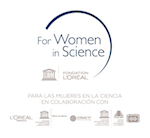 For the past 18 years, the L’Oréal-UNESCO For Women in Science program has encouraged, promoted and honoured women scientists all over the world. More than 2,500 researchers from 112 countries have been distinguished for their extraordinary discoveries and supported at key moments in their careers. Every year, five eminent women scientists and 15 young researchers from all continents are recognized by their peers and awarded before the general public at the international L’Oréal-UNESCO Ceremony. A total of 5 eminent women scientists from Mexico and 7 young Mexican researchers have been recognized at an international level. L’Oréal Mexico, in partnership with the National Commission for Cooperation with UNESCO, the Office of UNESCO in Mexico, the National Council on Science and Technology (CONACYT) and the Mexican Academy of Science (AMC) joined this global effort in 2007 and since then has granted 49 fellowships to Mexican women who are conducting research in local institutions.
For the past 18 years, the L’Oréal-UNESCO For Women in Science program has encouraged, promoted and honoured women scientists all over the world. More than 2,500 researchers from 112 countries have been distinguished for their extraordinary discoveries and supported at key moments in their careers. Every year, five eminent women scientists and 15 young researchers from all continents are recognized by their peers and awarded before the general public at the international L’Oréal-UNESCO Ceremony. A total of 5 eminent women scientists from Mexico and 7 young Mexican researchers have been recognized at an international level. L’Oréal Mexico, in partnership with the National Commission for Cooperation with UNESCO, the Office of UNESCO in Mexico, the National Council on Science and Technology (CONACYT) and the Mexican Academy of Science (AMC) joined this global effort in 2007 and since then has granted 49 fellowships to Mexican women who are conducting research in local institutions.
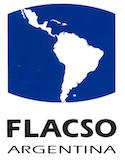 Facultad Latinoamericana de Ciencias Sociales (FLACSO) Argentina. FLACSO is an inter-governmental autonomous organization for Latin America and the Caribbean dedicated to research, teaching and spreading of social sciences. It was created on April 17, 1957, following a UNESCO initiative at the Latin American Conference on Social Sciences in Rio de Janeiro. Its membership is open to Latin American and Caribbean countries that subscribe the FLACSO agreement. Facultad Latinoamericana de Ciencias Sociales (FLACSO) Argentina. FLACSO is an inter-governmental autonomous organization for Latin America and the Caribbean dedicated to research, teaching and spreading of social sciences. It was created on April 17, 1957, following a UNESCO initiative at the Latin American Conference on Social Sciences in Rio de Janeiro. Its membership is open to Latin American and Caribbean countries that subscribe the FLACSO agreement. |
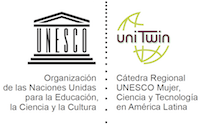 UNITWIN/UNESCO Chairs Programme, launched in 1992, promotes international inter-university cooperation and networking to enhance institutional capacities through knowledge sharing and collaborative work. The Programme supports the establishment of UNESCO Chairs and UNITWIN Networks in key priority areas related to UNESCO’s fields of competence – i.e. in education, the natural and social sciences, culture and communication. UNITWIN/UNESCO Chairs Programme, launched in 1992, promotes international inter-university cooperation and networking to enhance institutional capacities through knowledge sharing and collaborative work. The Programme supports the establishment of UNESCO Chairs and UNITWIN Networks in key priority areas related to UNESCO’s fields of competence – i.e. in education, the natural and social sciences, culture and communication. |
If you are interested in Partnering on the GS8 North and Latin America contact coop.int.ciencia@conacyt.mx
